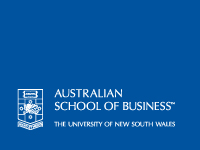|
|||||||||||||||||||||||||||||||||||||||||
| Business Info Technology - 3971 | |||||||||||||||||||||||||||||||||||||||||

The Co-operative Scholarship Bachelor of Information Systems (Business Information Technology), also known as BIS (BIT), is available to students who have been awarded a scholarship through the UNSW Co-op Program. The 4 year industry-linked degree (with the possibility of honours) has been designed in conjunction with Information Systems (IS) and Information Technology (IT) professionals. The program combines the requirements for the award of the degree with 18 months of industrial experience at three different sponsoring organisations (24 weeks at each). The industrial experience component can also extend outside of university semesters. Scholarships for the program are awarded to eligible students using donated funds from sponsoring organisations. Consideration for entry into the program commences once an application is made directly to the Co-op Program Office at the University of New South Wales and to the Universities Admissions Centre (UAC). For more information visit the UNSW Co-op Program website. Students who are academically acceptable for the BIS (BIT) program, but who are not offered a scholarship position, should consider registering for the first stage entry into the BIS 3979 program. If BIS (BIT) scholarships become available at the end of stage 1, students undertaking the BIS 3979 program may be offered an interview and a transfer into the BIS (BIT) 3971 Co-operative Scholarship program. For detailed information on the professional recognition this degree offers please visit Professional Recognition of Programs in the UNSW Online Handbook. Program Objectives and Learning Outcomes This 4 stage degree teaches IS theory and practice and provides industrial training linked to that teaching. The three industrial training periods in the course are approximately 6 months in duration each and run from January (stages 2 and 4) and July (stage 3).
Students are taught about the technical environment of IS and its business implications. The core areas of focus are IS, accounting and computer science. The program’s aim is to develop business savvy IS graduates who understand the technical issues which surround and impact an organisation’s business systems. IS graduates from this degree are able to develop careers in communications, networks analysis and development, IS security development, e-business systems development, business intelligence systems construction, IS and IT architecture and infrastructure development and maintenance. Year 1
And ONE of:
And ONE of:
Year 2
Year 3
Table 1 INFS electives:
Year 4 Honours Option
Table 2 Level 4 Honours Options:
General Education Requirements Students in this program must complete 12 UOC in General Education courses or their equivalent (unless otherwise entitled to exemption). For further information about General Education Requirements please refer to the UNSW Online Handbook.
Please note that students enrolled in programs within the Australian School of Business cannot take General Education courses offered by the School. These restrictions also apply to the following courses:
If students are unsure of their General Education requirements they should contact the Australian School of Business Student Centre (Ground floor, West Wing, Australian School of Business building)
Students interested in studying at Honours Level should refer to the relevant Honours plan record for entry requirements.
Please refer to the Program Structure for the academic requirements relating to this program.
For information regarding fees for UNSW programs, please refer to the following website: https://my.unsw.edu.au/student/fees/FeesMainPage.html
For further information, refer to Professional Recognition of Programs in the UNSW Online Handbook.
Please note that these requirements may be subject to change. Students should always follow the program requirements according to the year they started their degree. For more information please visit Previous UNSW Online Handbooks
Contact the Australian School of Business Student Centre for advice. tel: + 61 2 9385 3189 location: Ground Floor, West Wing, Australian School of Business Building Forms, policies and procedures Frequently asked questions Related Program(s) |
|||||||||||||||||||||||||||||||||||||||||


